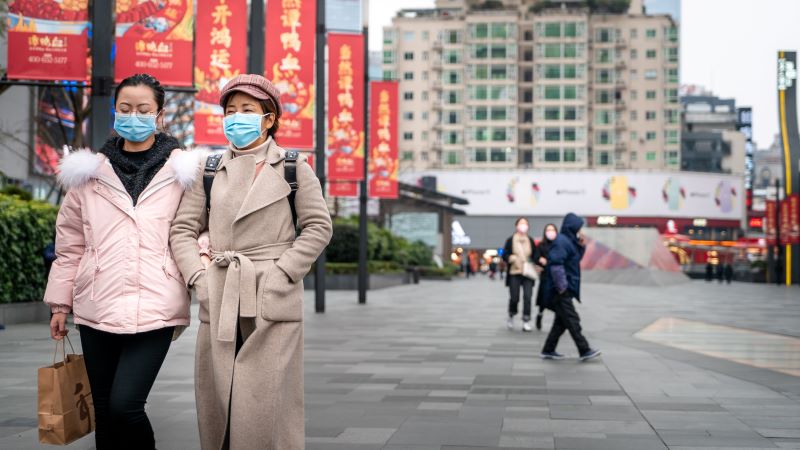China’s largest city, Shanghai, is in its fourth week of an ‘indefinite’ lockdown as the country struggles to contain the spread of Covid-19. The country’s zero-Covid strategy is facing its biggest test as the Omicron variant has led to more cases now than at any other point during the pandemic. In order to combat food shortages, the government has ordered supermarket chains to play a more centralised role in food distribution. China’s other mega-city, Beijing, is also on the brink of a potential lockdown. With supply disruptions and shortages challenging citizens everyday lives, consumer sentiment is dampened, leading to a return to stockpiling essential goods.
In Shanghai, Carrefour staff have been sleeping in-store to prepare the thousands of daily essential food orders sent out to Shanghai residents. Meanwhile, Meituan’s grocery-focused e-commerce platform has increased its inventory and sent over a thousand extra staffers to Shanghai for sorting and delivery. In a similar vein, Alibaba’s supermarket chain, Freshippo, announced it would add more couriers to meet the city’s high demand. A key struggle has been the maintenance of inter-province supply chains as Covid-19 testing is often a requirement to travel elsewhere within China.
Stockpiling and panic buying have re-emerged as visible behaviours in Shanghai, with many waking up early to put in food orders, only to find everything sold out before they can pay. These actions have been exacerbated by the indefinite nature of lockdown restrictions. Last week, Shanghai’s market regulator warned 12 e-commerce platforms, including Meituan, of price gouging and ‘improper price increases’. As the Omicron wave rises, panic buying is also being observed in other cities, such as Beijing, as mass-testing is now underway, which is widely regarded as a precursor to an imminent lockdown. Fears of a ‘Shanghai-style’ lockdown in the capital have prompted Beijing residents to stock up on essential goods, like instant noodles and toilet paper, despite the government’s claim that supplies are plentiful.
According to GlobalData’s 2022 Q1 consumer survey, over half (54%) of Chinese consumers have started “cooking meals at home from scratch,” or are doing this more frequently in the last three months. This highlights the significant adverse impact on foodservice at a time when takeaway deliveries have also been largely curtailed. Shanghai’s lockdown began as a five-day restriction that was soon extended to an indefinite period. Retailers and foodservice outlets are hampered as traders struggle to prepare for when they can reopen their businesses.
The current spread of Omicron has exposed frailties in the zero-Covid strategy as inter-province restrictions make internal travel significantly more difficult. For an economy increasingly reliant on domestic consumerism, China finds itself re-imposing harsh lockdowns at a time when the rest of the world has begun learning to live with Covid-19. It remains difficult to tell what the end game is for China’s zero-Covid strategy, but if the government is true to its insistence of eradicating Omicron, Chinese foodservice and retail will feel the bite for many more weeks to come.

US Tariffs are shifting - will you react or anticipate?
Don’t let policy changes catch you off guard. Stay proactive with real-time data and expert analysis.
By GlobalData





